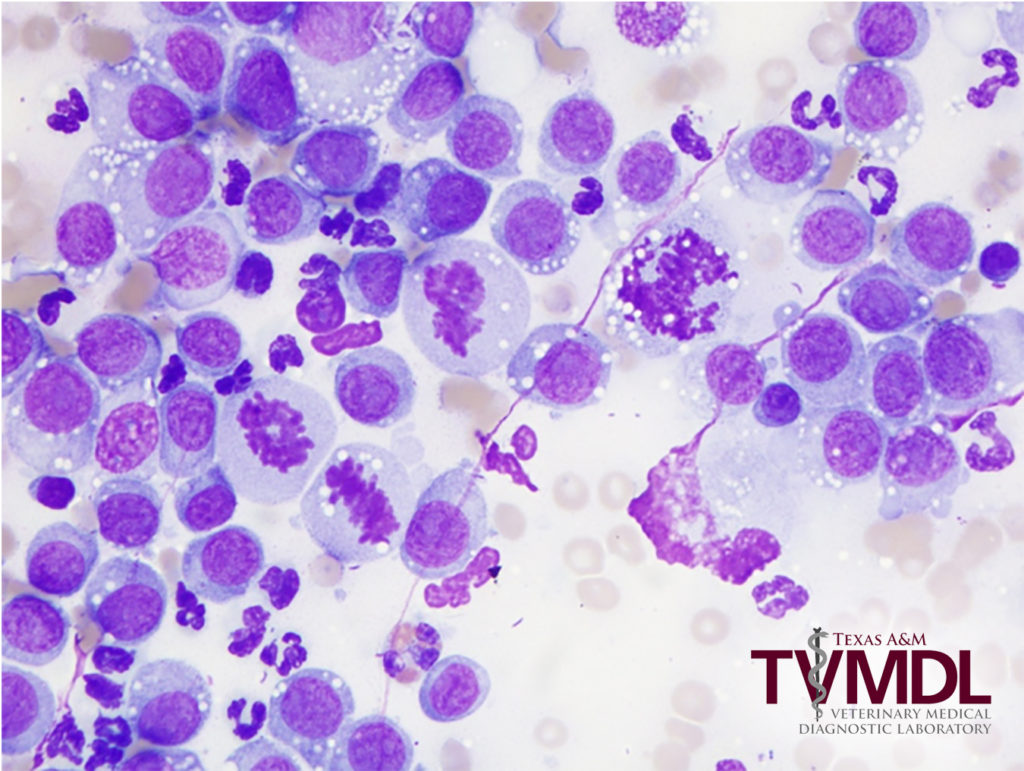Transmissible Venereal Tumor Discovered on Dog
By Judith Akins, DVM, MS
An aspirate from a mass on the penis of a 3-year-old, intact male, mixed breed dog was submitted for examination at the Texas A&M Veterinary Medical Diagnostic Laboratory (TVMDL) in College Station. The mass was proliferative (cauliflower-like) and ulcerated on the surface. History indicated the mass had grown rapidly. Slides from the aspirate were cellular with a uniform population of discrete round cells and mildly increased numbers of neutrophils. The round cells showed anisocytosis and anisokaryosis. These cells had a moderate amount of light basophilic staining cytoplasm and numerous cells had small, distinct vacuoles. The nuclei were large and round with coarsely clumped chromatin and there were numerous mitotic figures. The neutrophils were phagocytizing coccoid shaped bacteria. Based upon the location of the mass and the morphology of the round cells, the diagnosis was a transmissible venereal tumor (TVT).
Canine TVT is a sexually transmitted neoplasm that is more common in areas where there are large numbers of free roaming intact male and female dogs. The tumor is more typically found on the external genitalia, but can also be found on the lips or other portions of the skin or mucosa that may come in contact with the genitalia. This tumor typically grows rapidly initially then tends to remain static for a time. Spontaneous regression can occur after a period of time. Treatment usually consists of surgical excision, chemotherapy, radiation therapy, or a combination of these modalities.
To learn more about this case, contact Dr. Judith Akins, clinical pathologist, at the College Station laboratory. For more information about TVMDL’s test offerings, visit tvmdl.tamu.edu or call 1.888.646.5623.
